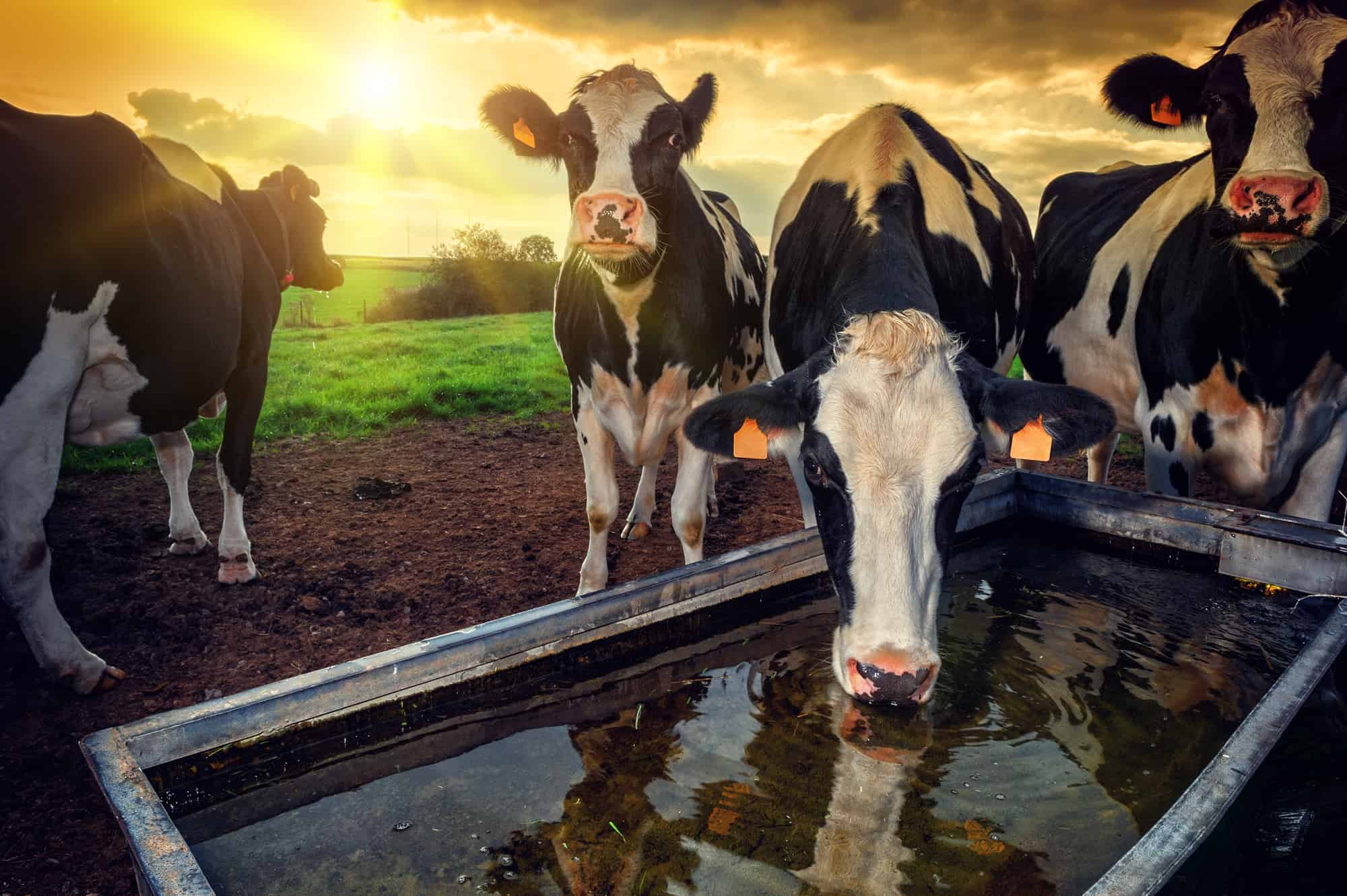You may not realize it, but your food choices have a significant impact on the environment. In particular, animal agriculture has a profound effect on our planet’s health.
As a consumer of meat and dairy products, you are contributing to deforestation and agricultural land degradation, loss of biodiversity, soil erosion, decreased carbon sequestration, water pollution, and the use of fertilizers and pesticides.
It’s important to understand how these environmental issues are linked to animal agriculture to make informed decisions about your food consumption. By choosing sustainable alternatives to traditional animal agriculture practices, you can help reduce your impact on the environment and promote a healthier future for yourself and generations to come.
Let’s explore some of the environmental impact of animal agriculture and how it affects our planet and what you can do about it.
Table of Contents
Deforestation and Land Degradation
You’re probably not aware of it, but when you eat meat and dairy products, you’re contributing to the deforestation and land degradation happening all around us. Animal agriculture requires vast amounts of land for grazing or growing crops to feed the animals. This has led to the massive clearing of forests and the destruction of natural habitats for wildlife.
Moreover, animal agriculture is responsible for soil degradation due to overgrazing and heavy use of chemical fertilizers. Intensive farming practices deplete essential nutrients from the soil, making it less productive and more vulnerable to erosion.
As a result, deforestation and land degradation lead to environmental problems such as loss of biodiversity, water pollution, increased greenhouse gas emissions, and climate change. So next time you choose what to eat, consider the impact that your choices have on our planet’s health.
Loss of Biodiversity
Did you know that the way we produce food is causing a significant reduction in the variety of species that inhabit our planet? Animal agriculture is one of the leading causes of biodiversity loss.
The demand for meat and dairy products has led to the clearing of forests and other habitats, destroying the homes of countless species. The loss of biodiversity has serious consequences for our ecosystem.
Each species plays an important role in maintaining balance within their habitat. When one disappears, it can have a ripple effect on others, ultimately affecting the entire ecosystem.
If we continue to prioritize animal agriculture over protecting our environment and its inhabitants, we risk irreparable damage to our planet’s delicate ecosystem. It’s time to start considering more sustainable food choices to ensure a healthy future for ourselves and all living things on Earth.
Soil Erosion
As you’re enjoying your meal, consider how the way our food is grown can have a lasting impact on the soil beneath our feet and the ability of future generations to grow food sustainably.
Animal agriculture contributes significantly to soil erosion, which occurs when topsoil is washed away or blown off by wind. This not only leads to decreased soil fertility but also contributes to water pollution as sediment runoff enters nearby streams and rivers.
Soil erosion has major implications for global food security and environmental sustainability. As we continue to rely on animal agriculture as a primary source of protein, we must take into account the long-term effects it has on our planet’s ability to support life.
By reducing our consumption of meat and dairy products, we can help mitigate some of these negative impacts and move towards a more sustainable future for ourselves and future generations.
Decreased Carbon Sequestration
If you want to see the earth as a healthy and vibrant planet, it’s important to understand how reducing meat and dairy consumption can help increase carbon sequestration in the soil. Carbon sequestration refers to the process of capturing carbon from the atmosphere and storing it in different sinks such as oceans, forests, and soil. Animal agriculture contributes significantly to greenhouse gas emissions, which contribute to global warming. When animals are raised for food, they produce methane via enteric fermentation, which is a potent greenhouse gas with 28 times more heat-trapping capacity than carbon dioxide.
Reducing meat and dairy consumption is essential to help increase carbon sequestration in the soil. Here are five ways that decreasing animal agriculture can positively impact carbon sequestration:
- The production of animal feed requires large amounts of fossil fuels for transportation and fertilizers, which contribute to greenhouse gas emissions.
- Forests are often cleared for grazing land or crop production for animal feed, resulting in decreased carbon storage.
- Reduced livestock sector populations lead to less manure produced, which reduces methane emissions from manure management practices.
- Transitioning away from industrialized animal agriculture towards regenerative farming practices can enhance soil health by improving water retention, nutrient cycling, and microbial activity, leading to increased carbon storage.
- Plant-based diets have been shown to have lower environmental footprints compared to diets high in animal products due to their lower levels of greenhouse gas emissions.
Water Pollution
You’ll be surprised to learn that reducing meat and dairy consumption can have a significant impact on water pollution. Animal agriculture is one of the leading causes of water pollution, with animal waste contaminating nearby bodies of water. This waste contains high levels of nitrogen and phosphorus, which can lead to harmful algal blooms that deplete oxygen levels in the water and kill aquatic life.
Furthermore, animal agriculture also contributes to water scarcity as it requires large amounts of water for irrigation and cleaning animal housing facilities. By reducing your meat and dairy intake, you can help decrease the demand for animal agriculture and reduce its negative impact on our water resources.
Consider incorporating more plant-based meals into your diet to not only benefit your health but also contribute towards a healthier environment.
Use of Fertilizers and Pesticides
Hey there, did you know that by reducing your use of fertilizers and pesticides in your garden or lawn, you can help protect our water resources?
These chemicals are often washed away by rainwater and end up contaminating nearby rivers, lakes, and groundwater sources. This not only affects the quality of our drinking water but also harms aquatic life and ecosystems.
To minimize the environmental impact of animal agriculture, farmers also need to reduce their use of fertilizers and pesticides.
The excessive use of these chemicals leads to soil degradation, air pollution, and contamination of surface and groundwater sources. By adopting sustainable farming practices like crop rotation, natural pest control methods, and organic farming techniques, farmers can protect the environment while still producing healthy crops for us to eat.
Discharge of Animal Waste into Waterways
When farmers discharge animal waste into waterways, they are polluting the same water sources that we rely on for drinking and recreation. This can lead to a variety of health problems, including bacterial infections, skin irritations, and gastrointestinal issues. Additionally, it can harm aquatic ecosystems by depleting oxygen levels in the water and causing toxic algae blooms.
Animal waste contains high levels of nitrogen and phosphorus, which can cause excessive growth of algae in waterways. This leads to an imbalance in the ecosystem and can result in fish kills and other wildlife deaths. Furthermore, animal waste may also contain antibiotics and hormones used in animal agriculture, which can contribute to antibiotic resistance in humans who consume contaminated water or seafood from polluted waters.
It is important for farmers to properly manage their animal waste to prevent pollution of our valuable water resources.
Sustainable Alternatives to Animal Agriculture
Now that you’ve learned about the negative impact of animal waste on our waterways, it’s time to explore sustainable alternatives to animal agriculture.
These alternatives offer a way to reduce the environmental damage caused by traditional farming practices while still providing us with nutritious food.
One such alternative is plant-based diets, which have been gaining popularity in recent years.
By consuming more fruits, vegetables, legumes, and grains, we can reduce our reliance on animal products and their associated environmental impacts.
Additionally, we can support local farmers who use sustainable farming methods and prioritize soil health over profit margins.
With these changes in diet and consumption habits, we can work towards a more sustainable future for ourselves and the planet.
Frequently Asked Questions
What Is The Overall Impact Of Animal Agriculture On Climate Change?
You should know that animal agriculture is a major contributor to climate change. It’s estimated that the industry accounts for around 14.5% of global greenhouse gas emissions, primarily through methane and nitrous oxide from livestock.
How Does Animal Agriculture Contribute To Antibiotic Resistance?
Did you know that animal agriculture contributes to antibiotic resistance? By using antibiotics on animals, we create superbugs that can infect humans and resist treatment. This poses a threat to our safety and health.
How Do Animal Welfare Practices Affect The Environmental Impact Of Animal Agriculture?
You may wonder how animal welfare practices impact the environment. Happier animals produce fewer stress hormones, leading to healthier meat and reduced need for antibiotics. Additionally, ethical farming methods prioritize sustainability, reducing environmental harm.
What Are The Economic Consequences Of Transitioning Away From Animal Agriculture?
So, you’re considering ditching animal agriculture? Brace yourself for the economic consequences. It’ll be a bumpy ride with lost jobs, decreased GDP, and higher food prices. But hey, at least the planet will thank you.
What role do consumer choices play in reducing the environmental impact of animal agriculture?
You have the power to reduce the environmental impact of animal agriculture through your consumer choices. Opt for plant-based options, choose sustainably-raised meat, and support local farmers who prioritize environmentally-friendly practices.
Conclusion
So, you now know about the devastating environmental impact of animal agriculture. By consuming meat and dairy products, you’re contributing to deforestation and land degradation, loss of biodiversity, soil erosion, decreased carbon sequestration, water pollution, use of fertilizers and pesticides, and discharge of animal waste into waterways.
But don’t worry! There are sustainable alternatives to animal agriculture that can help mitigate these issues. Plant-based diets or even just reducing your consumption of animal products can have a significant positive impact on the environment.
So next time you’re at the grocery store or a restaurant menu catches your eye, consider choosing a plant-based option instead. As the saying goes: “Every little bit helps.”




